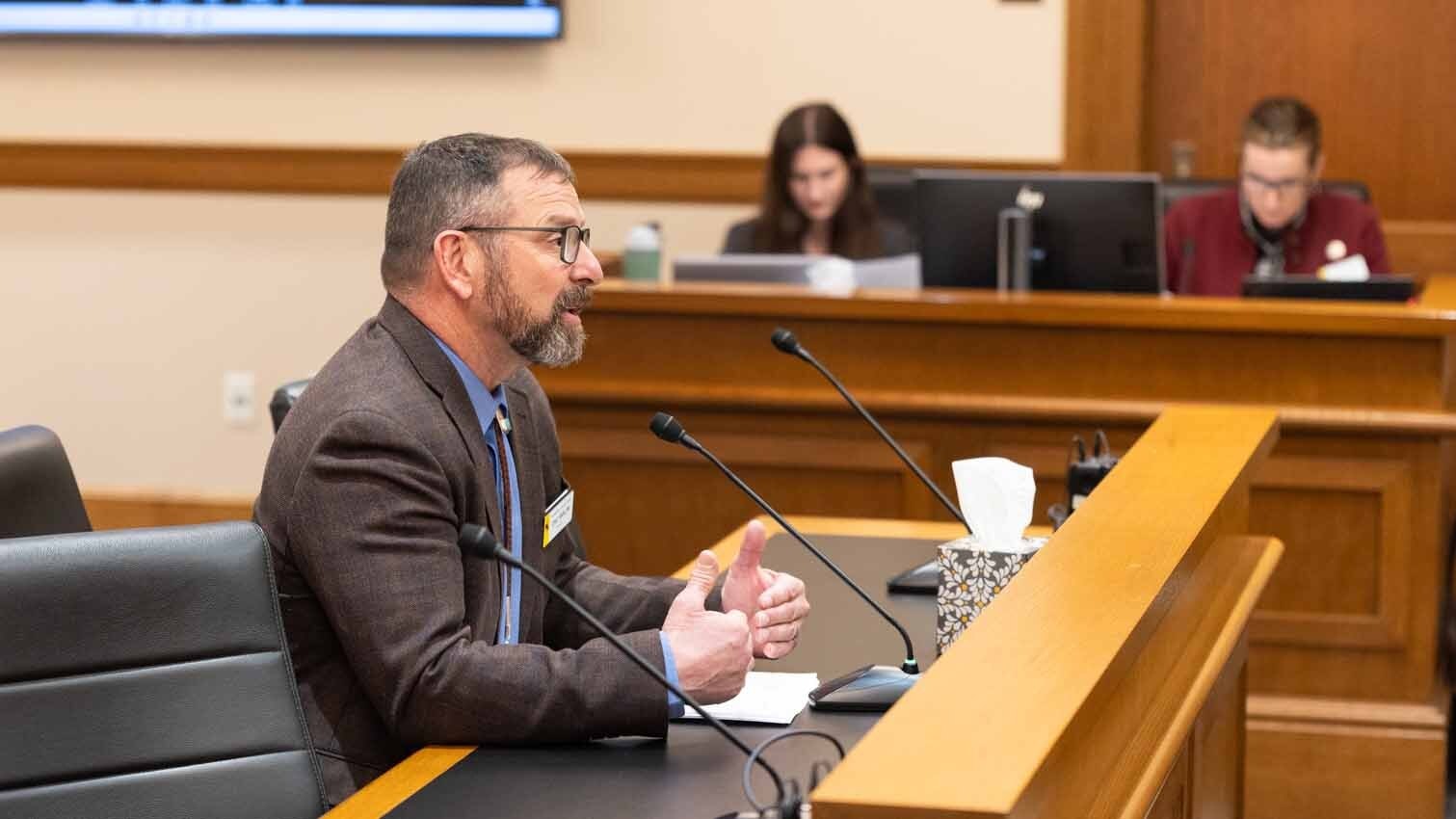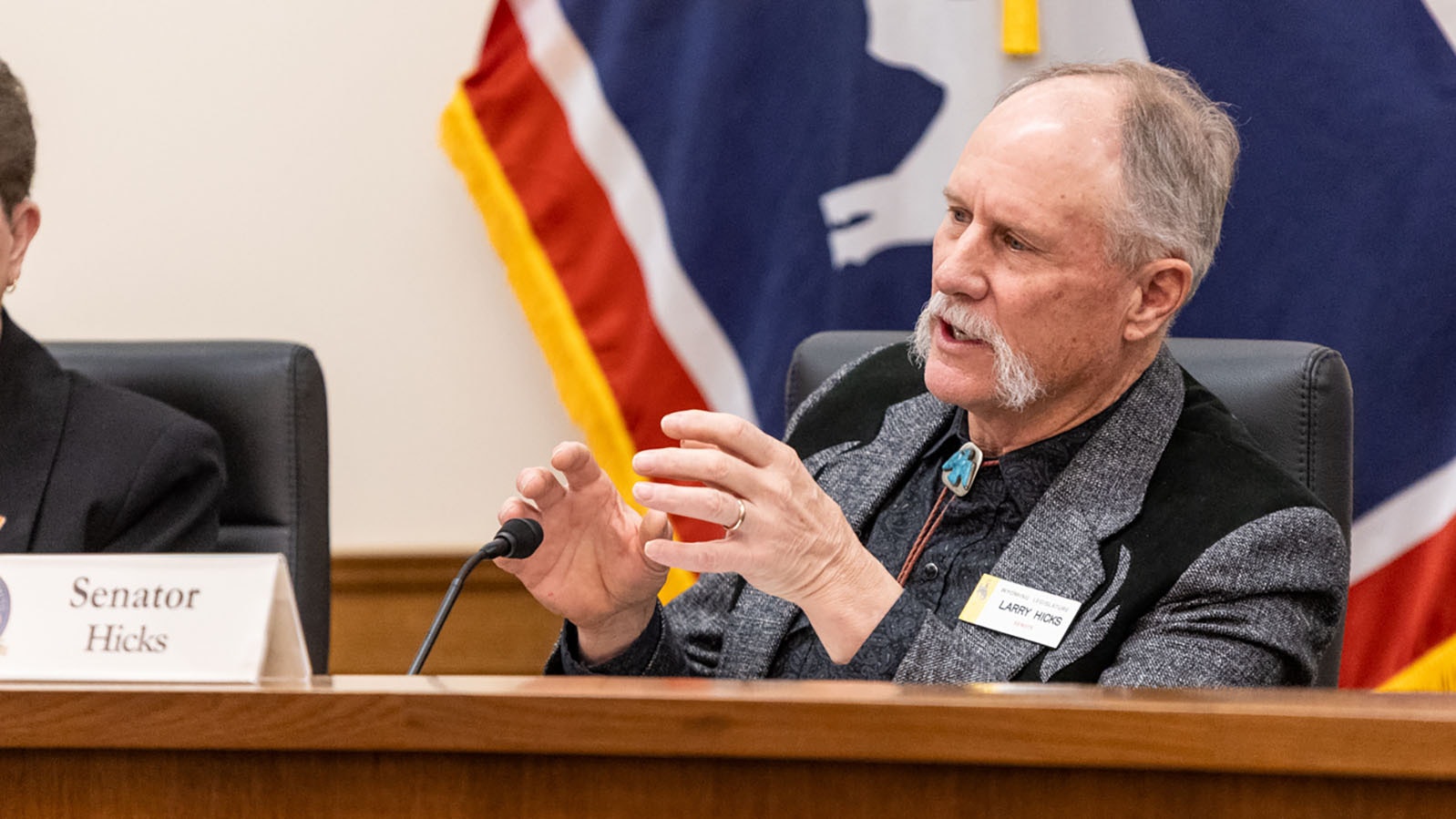A prolonged legal battle over a Hot Springs County teepee tourist retreat continues, with the county being sued for the second time in four years over a resort commissioners originally blocked from operating commercially.
After the county reversed course this past winter, Martin Oravec and Gary Frazier, neighbors of the retreat, almost immediately sued.
Backstory
Michael and Michele Stevens, owners of the Tipi Retreat, originally sued the county commissioners in 2021 over their rejection of a land use change that would’ve let the couple run their commercial glamping resort. The resort wants to put a particular focus on serving ex-military members suffering from PTSD.
The main objection the neighbors have against the Tipi Retreat is its customers' use of a private road that’s also used by three other landowners. Each one of the landowners have a legal easement to use the road, but the road itself has no restrictions.
Both sides of this dispute have been lobbying with factions of the Hot Springs County Commission over the last four years to try and get their way. Conversely, members on both sides of the three-member commissioner board have admitted to being friends with different parties to the lawsuits against the county.
In 2024, District Court Judge Bill Simpson ruled that the county’s land use plan is legal, although he also said in a separate judgement the county imposed all but one of its requirements arbitrarily on the Stevenses, and made errors in its decision-making process.
Simpson also ruled the county has the right to issue fines for non-compliance and imposed a penalty of $40,250 on the couple for operating their business without permission.
Hot Springs Commissioner Paul Galovich said he thought the fine was fair, particularly when considering the county was originally contemplating assessing the couple millions of dollars.
Power Change
This past winter, a new commission took over with a majority of members now more sympathetic to the business owners’ side of the dispute.
Galovich had already made it clear he supported the couple’s fight against the county, testifying on their behalf during the bench trial despite being a commissioner at the time, thereby testifying against his own side of the lawsuit.
“I’ve been supporting them (Tipi Retreat) since the beginning because I felt that the judgement that was being made was out of context with the land use plan at the time,” Galovich said.
He also said the fact that the land use plan was updated in 2022 with additions that relate to this individual case shows the county knew it erred.
This year, Galovich was joined by new commission member Bob Aguiar on the board, who shares similar views about the Tipi Retreat, thus giving their side a majority.
Under the new membership in February, the commissioners held a remedy hearing for the Tipi Retreat and approved its original application, changing its use from 60 acres of agricultural land use to commercial land use for a 12-teepee campground on 10 acres.
This was also done with the agreement that the county would no longer impose fines as long as the retreat dropped its appeal in Wyoming Supreme Court.
Galovich described this arrangement to Cowboy State Daily as brokering a deal with the Stevenses, but it’s not clear what, if anything, the couple gave up besides the right to keep fighting a case they had in most ways already won.
Galovich is convinced the county would’ve lost in the high court. He also said if the case had been allowed to continue, it could have put not only Hot Springs County’s, but land use plans across the state in violation as determined by the court.
“I did not feel it would be in the wisdom of our county to continue to financially pursue that, nor would it be in the wisdom of the state with other counties to pursue that,” Galovich said. “I realize the many holes by which the decision process had in it.”
Hot Springs Commission Chair Tom Ryan disagrees and said all that would have happened in that scenario is that the district court would’ve been required to reconsider the case.
Recusals And Rebuttals
Ryan doesn’t believe his fellow commissioners had the legal right to call a remedy hearing to change the zoning on the retreat property in February, and that the issue should have restarted through the land use application process.
“If you’re not going to follow it, then what’s the point of having a land use plan?” he questioned.
The lawsuit also claims “public notice of the meeting was not advertised, nor were any impacted landowners notified by mail,” as typically required for any zoning change in Wyoming. Ryan also said public comment wasn’t taken at it.
Ryan recused himself from the vote and County Attorney Jill Logan advised against changing the zoning. She’s also recused herself from the newest lawsuit.
Galovich said since the case was about to go before the Wyoming Supreme Court, the original zoning application was not closed, which gave them the right to handle the meeting as they did.
He also said because Simpson determined that parts of that process were being applied arbitrarily, it was up to the commissioners to take matters into their own hands. He believes no avenue for appeal or remedy was being given to the Tipi Retreat on the land use change.
“In my opinion, if you’re going to err in relationship to property rights, you should air in favor of the individual who owns the property, because that’s constitutional,” he said.
After the original denial, the Tipi Retreat hired a professional engineer to make sure its private road complied with the land use plan 100%, one of the stipulations Simpson said the county justly applied. Galovich believes the Stevensens have now addressed every issue the county identified.
If the District Court rules that the commissioners were allowed to provide a remedy, Ryan believes it could set a precedent where the public can overturn any land use plan regulation they don’t agree with.
“That’s how the public is going to see this,” he said.
Galovich said the commissioners should have approved the original zoning change, a decision the neighbors then could’ve challenged directly against the Stevenses in civil court, rather than costing the county money.
“It should have been a civil matter from the very beginning,” he said.
The original lawsuit cost Hot Springs around $167,000, a price tag that will now increase even more considering the county had to hire outside legal counsel from Sheridan for the new fight.
“It wasn’t cheap and we’re still spending taxpayer money,” Ryan said.
Leo Wolfson can be reached at leo@cowboystatedaily.com.





